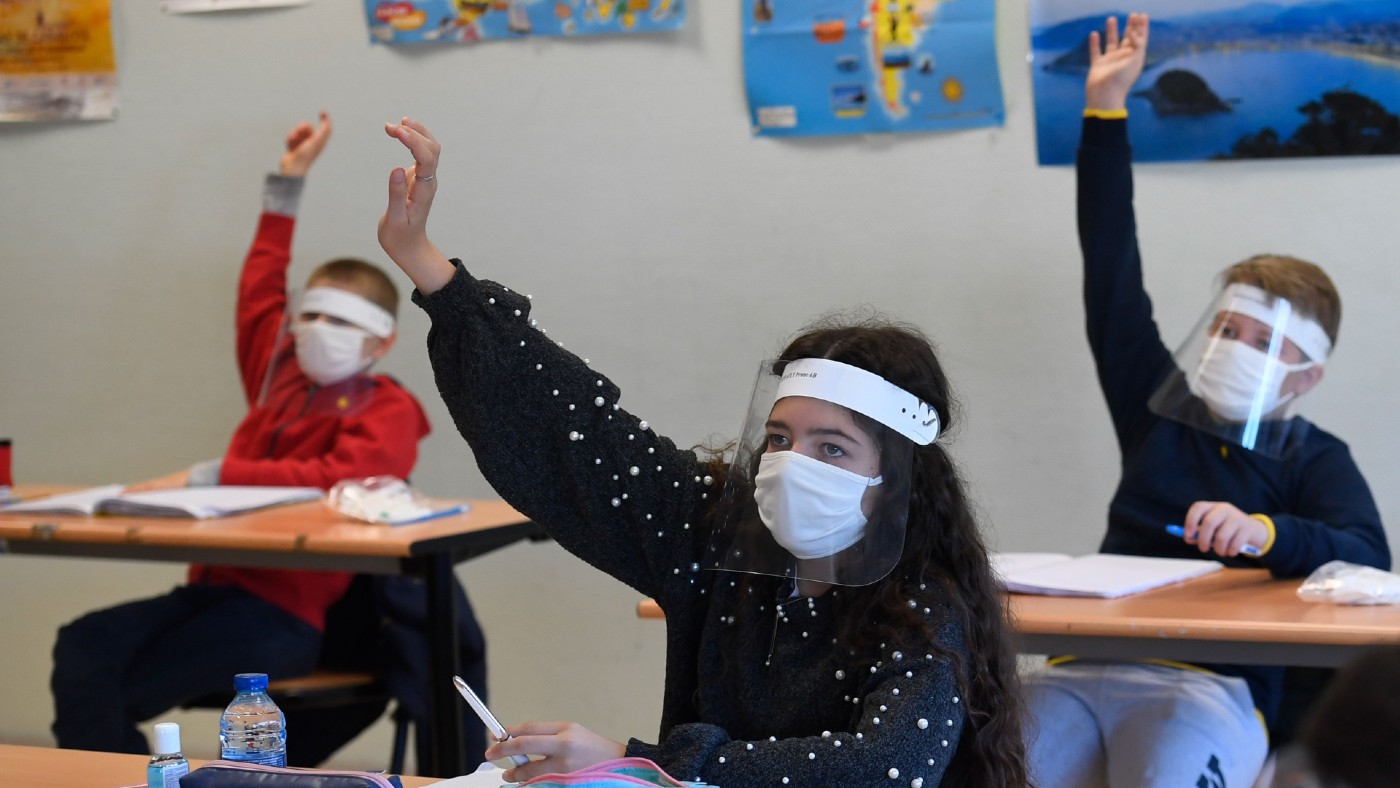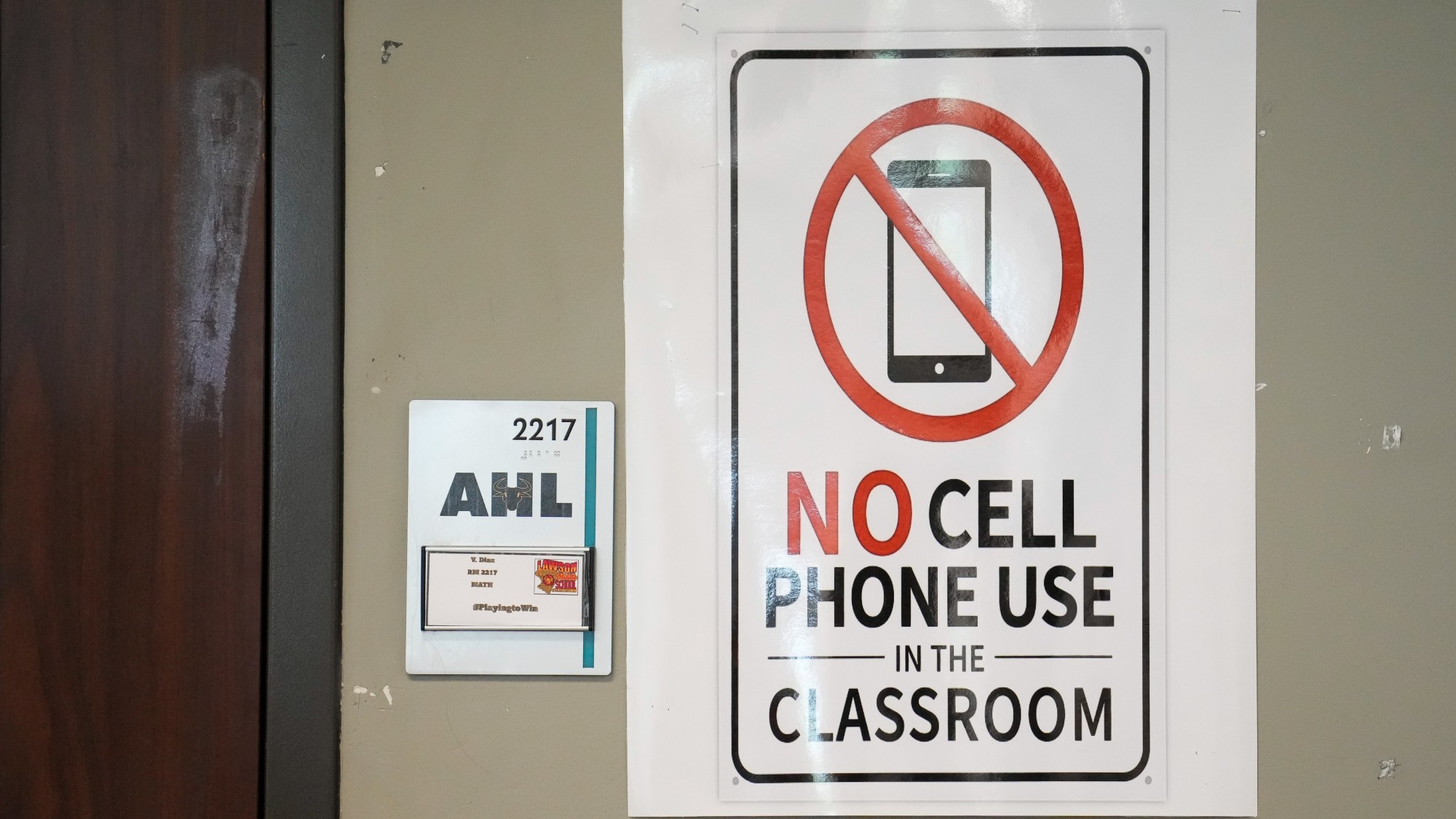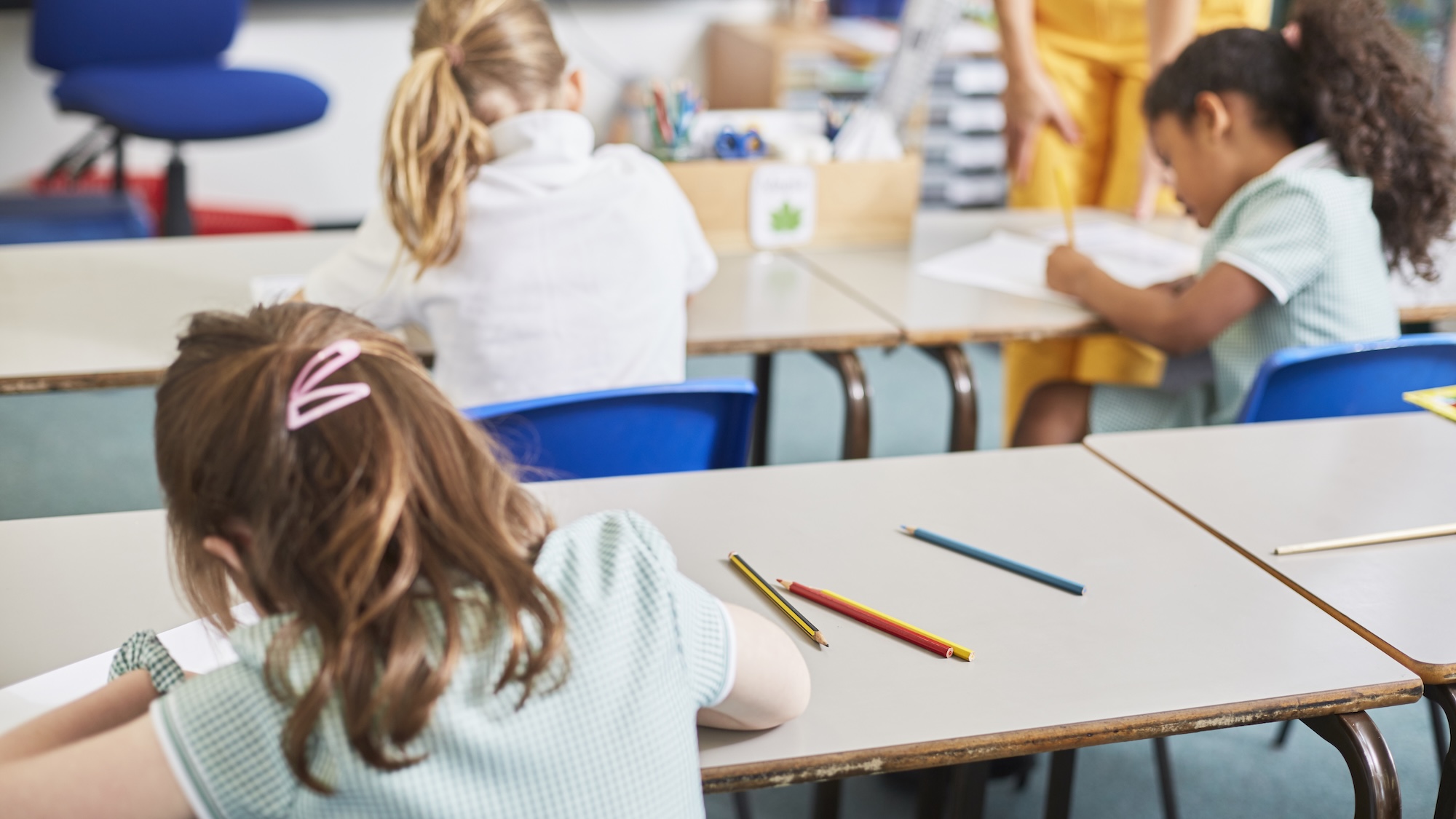Coronavirus: is it safe to reopen schools?
Researchers are divided over the risk posed by Covid-19 to children

A free daily email with the biggest news stories of the day – and the best features from TheWeek.com
You are now subscribed
Your newsletter sign-up was successful
Downing Street is drawing up plans for the reopening of schools in England from next month following the coronavirus shutdown.
Schools across the country have been closed since 20 March, but will begin a phased reopening from 1 June under the government’s lockdown exit strategy.
Reception, Year One and Year Six students who will be first to head back - but despite the implementation of social distancing measures including smaller classes, fears for children’s safety remain.
The Week
Escape your echo chamber. Get the facts behind the news, plus analysis from multiple perspectives.

Sign up for The Week's Free Newsletters
From our morning news briefing to a weekly Good News Newsletter, get the best of The Week delivered directly to your inbox.
From our morning news briefing to a weekly Good News Newsletter, get the best of The Week delivered directly to your inbox.
Is it safe to reopen schools?
Researchers are split over the risk posed by the Covid-19 coronavirus to children.
The Guardian reports that “only a handful of studies have been carried out across the world, and scientists are divided over their interpretation”.
Advocates of the imminent reopening of UK schools include Dr Alasdair Munro, a paediatric infectious disease expert at University Hospital Southampton, who points to a study conducted in the northern Italian town of Vo, at the heart of the country’s coronavirus outbreak.
A free daily email with the biggest news stories of the day – and the best features from TheWeek.com
Researchers from the University of Padua and the Red Cross tested more than 80% of the town’s 3,300-odd residents - including those who did not have symptoms - and found that while 2.8% tested positive, no children under the age of ten had caught the virus.
“Yet quite a number of children were living in households with infected people,” Munro notes.
Studies in Norway, South Korea and Iceland have resulted in similar findings, with “very low rates of infected children in communities”, The Guardian adds.
However, Bloomberg reports that research at the Institute of Virology at Berlin’s Charite hospital found that children were just as infectious as adults, triggered fresh warnings against reopening schools too swiftly.
–––––––––––––––––––––––––––––––For a round-up of the most important stories from around the world - and a concise, refreshing and balanced take on the week’s news agenda - try The Week magazine. Start your trial subscription today–––––––––––––––––––––––––––––––
What can be learned from countries that have already restarted classes?
Denmark reopened its schools last month, with safety measures in place that are now “the go-to model for Boris Johnson’s government as it seeks to coax teachers and unions into going back to work”, The Observer says.
Students in the Nordic country are encouraged to keep two metres apart at all times, with some classes held in the open air, and schools have introduced strict hand-sanitising regimes.
The Danish reopening “has, so far, been smooth”, the newspaper continues, but “does that mean it is necessarily the right one for Britain?”
Dorte Lange, vice-president of the Danish Union of Teachers, points out that “the situation in society and with Covid-19 is totally different” in the two countries, with Danish schools having closed a week before those in the UK, and different approaches to lockdown by the two governments.
Indeed, the measures put in place by the various countries that are starting to reopen schools are nothing less than a “giant experiment”, says The New York Times.
In China, students now enter school through thermal scanners and eat lunch at tables outfitted with plastic dividers. Meanwhile in the Australian city of Sydney, schools are reopening to classes cut into groups, with students attending one day per week alongside a quarter of their peers. Hong Kong and Japan are experimenting with a similar approach.
But with so many questions still unanswered, “experts say mass testing is the only way to avoid the reopening of schools becoming a gamble”, The New York Times says.
In an opinion piece for The Guardian, Dr Lee Hudson, a consultant paediatrician and chief of mental health services at Great Ormond Street, says that ultimately, no one knows exactly when will be the best time to send children back to school.
“When is it safe to go back, and what are the risks? It’s likely no one is going to be able to give a firm answer for some time, so it is about balancing knowns and unknowns,” he concludes.
-
 The environmental cost of GLP-1s
The environmental cost of GLP-1sThe explainer Producing the drugs is a dirty process
-
 Greenland’s capital becomes ground zero for the country’s diplomatic straits
Greenland’s capital becomes ground zero for the country’s diplomatic straitsIN THE SPOTLIGHT A flurry of new consular activity in Nuuk shows how important Greenland has become to Europeans’ anxiety about American imperialism
-
 ‘This is something that happens all too often’
‘This is something that happens all too often’Instant Opinion Opinion, comment and editorials of the day
-
 The pros and cons of banning cellphones in classrooms
The pros and cons of banning cellphones in classroomsPros and cons The devices could be major distractions
-
 School phone bans: Why they're spreading
School phone bans: Why they're spreadingFeature 17 states are imposing all-day phone bans in schools
-
 Schools: The return of a dreaded fitness test
Schools: The return of a dreaded fitness testFeature Donald Trump is bringing the Presidential Fitness Test back to classrooms nationwide
-
 Send reforms: government's battle over special educational needs
Send reforms: government's battle over special educational needsThe Explainer Current system in 'crisis' but parents fear overhaul will leave many young people behind
-
 Education: Can public schools be religious?
Education: Can public schools be religious?Feature A Supreme Court seems ready to rule in favor of religious charter schools in Oklahoma, which could reshape public education
-
 America's academic brain drain has begun
America's academic brain drain has begunIN THE SPOTLIGHT As the Trump administration targets universities and teachers, educators are eying greener academic pastures elsewhere — and other nations are starting to take notice
-
 Schools' Send crisis: how can it be fixed?
Schools' Send crisis: how can it be fixed?Today's Big Question Government urged to reform support for children with special educational needs and disabilities and save councils from bankruptcy
-
 Unschooling: the radical education trend raising eyebrows
Unschooling: the radical education trend raising eyebrowsUnder the radar Some parents are letting their children lead their education